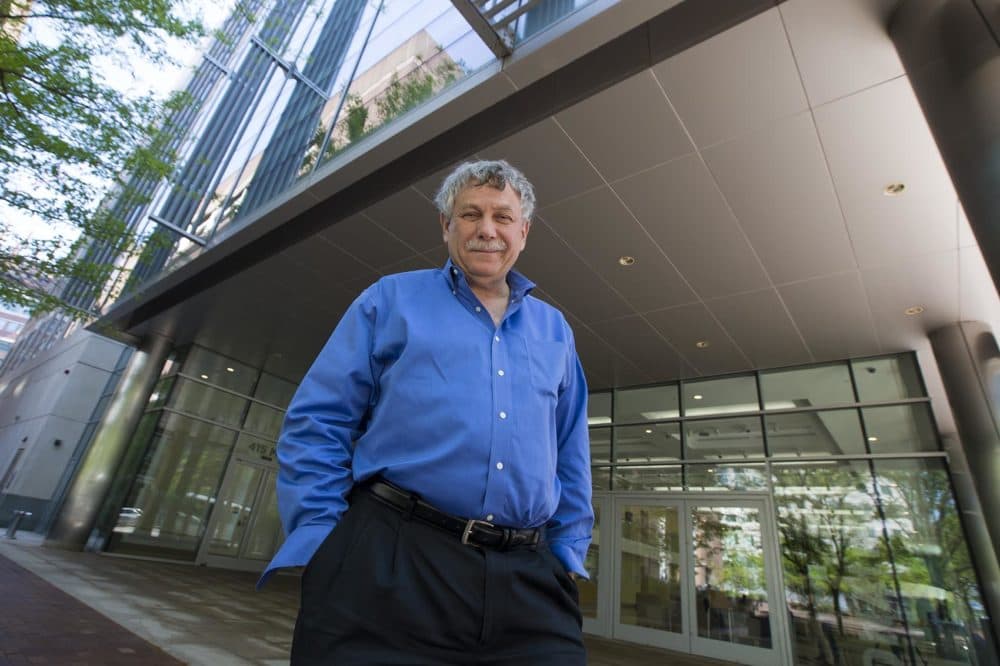Advertisement
Former Broad leader's future at Harvard, MIT unclear after bullying investigation

There is still no word on whether Eric Lander, former director of the Broad Institute and professor at MIT and Harvard, will return to his academic positions following his resignation from the Biden White House.
Lander, a tenured professor in the biology department at MIT and a professor at Harvard, took a two-year leave of absence when he was named as Biden's top science advisor in January 2021. He also stepped down from his leadership post at the Broad, where he remains listed online as the institute's founding director and a faculty member.
Asked about Lander's future at MIT and Harvard, both institutions said Lander is currently on unpaid leave and gave no further comment. The Broad made a similar statement.
Lander did not respond to a request for comment about his future plans.
Lander resigned Monday from his post at the White House Office of Science and Technology Policy, after an internal investigation found credible evidence that he created a toxic work environment.
In a recording obtained by Politico, which first reported the investigation, a White House official said Lander spoke “harshly and disrespectfully to colleagues in front of other colleagues.” The investigation found that 14 people who worked with Lander at OSTP complained about a toxic work environment.
Lander's work at the White House included the COVID-19 pandemic and the president's cancer "moonshot" initiative. In announcing he would step down, Lander expressed sorrow for his actions.
“I am devastated that I caused hurt to past and present colleagues by the way in which I have spoken to them,” Lander wrote in his resignation letter.
There was swift reaction from the scientific community. The American Association for the Advancement of Science disinvited Lander as a speaker at its annual conference this month.
"Unfortunately, toxic behavioral issues still make their way into the STEM community where they stifle participation and innovation," the association said in a written statement.
Advertisement
Lander's appointment was seen by scientists as important and symbolic. It was the first time a science advisor had been elevated to the level of the president's cabinet. So, the revelations about his behavior came as a disappointment to some.
"It really bothers me that he squandered the opportunity to say 'science is at the table as a cabinet member,' " said Andrew Rosenberg, director of the Center for Science and Democracy at the Union of Concerned Scientists, an advocacy group in Cambridge.
Rosenberg said universities and research institutions have repeatedly failed to curtail bad behavior by star scientists such as Lander.
"With so many things happening right now, politically, the pandemic, with racial reckoning, makes all bullying feel that much more intense," Rosenberg said. "It's unacceptable in the workplace."
Lander, a geneticist, mathematician and molecular biologist, is known for his work on the Human Genome Project. He has a reputation for being demanding and could be brusque at times, according to people who worked with him in Massachusetts.
But Ellen Clegg, who served as deputy director of communication under Lander at the Broad from 2009-2012, said she was surprised by the extent of the allegations in Washington, D.C. Clegg said she knew Lander to be a fair boss.
"I saw Eric Lander be exacting, of himself and others,” Clegg recalled. “I saw him be demanding, and I saw him be inspiring. I learned a tremendous amount from him.”
Under his leadership, the Broad attracted large amounts of funding and brought scientists together on ambitious projects, including efforts to better understand the genetic underpinnings of diseases and seek new treatments. During the Obama administration, Lander served on the President's Council of Advisors on Science and Technology.
This is not Lander's first brush with controversy. In 2016, for example, he wrote an article published in the journal Cell about the history of the gene editing technology CRISPR. Some members of the scientific community accused him of errors, including downplaying the contributions of scientists Emmanuelle Charpentier and Jennifer Doudna — both women. Lander was also accused of failing to disclose conflicts of interest.
Charpentier and Doudna went on to win the 2020 Nobel Prize in Chemistry for their work on gene editing.
The Broad Institute is involved in an ongoing dispute over CRISPR patents with the University of California, Berkeley, where Doudna leads her own lab.
In Massachusetts, several scientists contacted by WBUR declined to comment on Lander's resignation. Across social media, however, a number of scientists pointed to past warnings about Lander, such as an editorial written by the organization 500 Women Scientists opposing Lander's nomination to the Biden cabinet.
"We must recognize that Lander has a reputation among some scientists for being controversial," the organization said prior to Lander's confirmation. "And colleagues have criticized him for his 'ego without end.' "
